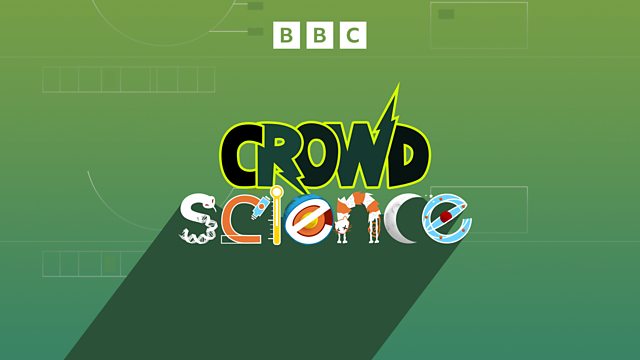
Why do we cry?
Only humans cry emotional tears, whether it’s tears of sadness or tears of joy. But why?
Tears of joy, tears of sadness, tears of frustration or tears of pain - humans are thought to be the only animals that cry tears of emotion. CrowdScience listener Lizzie wants to know: why do we cry for emotional reasons? What is its evolutionary benefit? And why do some people cry more than others?
It turns out that humans cry three types of tear: basal, reflex and emotional. The first kind keeps our eyes nice and lubricated and the second flushes out irritants such as fumes from the pesky onion, but the reasons for emotional tears are a bit harder to pin down.
Using a specially designed tear collection kit, presenter Caroline Steel collects all three kinds of tears. With them safely stashed in tiny vials, she heads to the Netherlands, to Maurice Mikkers’ Imaginarium of Tears. Looking at her crystallised tears under a microscope will hopefully unveil a mystery or two.
Marie Bannier-Hélaouët, who grew tear glands for her PhD, explains how the nervous system processes our emotions into tears. But why should we cry for both happiness and sadness, and for so many other emotions in between? Ad Vingerhoets, Professor of Clinical Psychology at Tilburg University, suggests we cry for helplessness - our bodies do not know how to process such intensity of feeling.
This is vital for human connection, says Lauren Bylsma, Associate Professor of Psychiatry at the University of Pittsburgh. Tears can both solicit help and reduce aggression in those nearby, which is why we are all so familiar with the crying of babies. With Lauren’s help we also explore why some people cry more than others, and what that might mean for those who don’t cry at all.
On radio
More episodes
Previous
Broadcasts
- Next Friday 20:32GMTBBC World Service Online, Americas and the Caribbean, UK DAB/Freeview & Europe and the Middle East only
- Next Friday 21:32GMTBBC World Service except Online, Americas and the Caribbean, Europe and the Middle East & UK DAB/Freeview
- Mon 24 Nov 2025 02:32GMTBBC World Service except Americas and the Caribbean
- Mon 24 Nov 2025 05:32GMTBBC World Service Australasia, Americas and the Caribbean, South Asia & East Asia only
- Mon 24 Nov 2025 09:32GMTBBC World Service
- Mon 24 Nov 2025 13:32GMTBBC World Service Australasia, East and Southern Africa, News Internet & West and Central Africa only
Podcast
-
![]()
CrowdScience
Answering your questions about life, Earth and the universe

